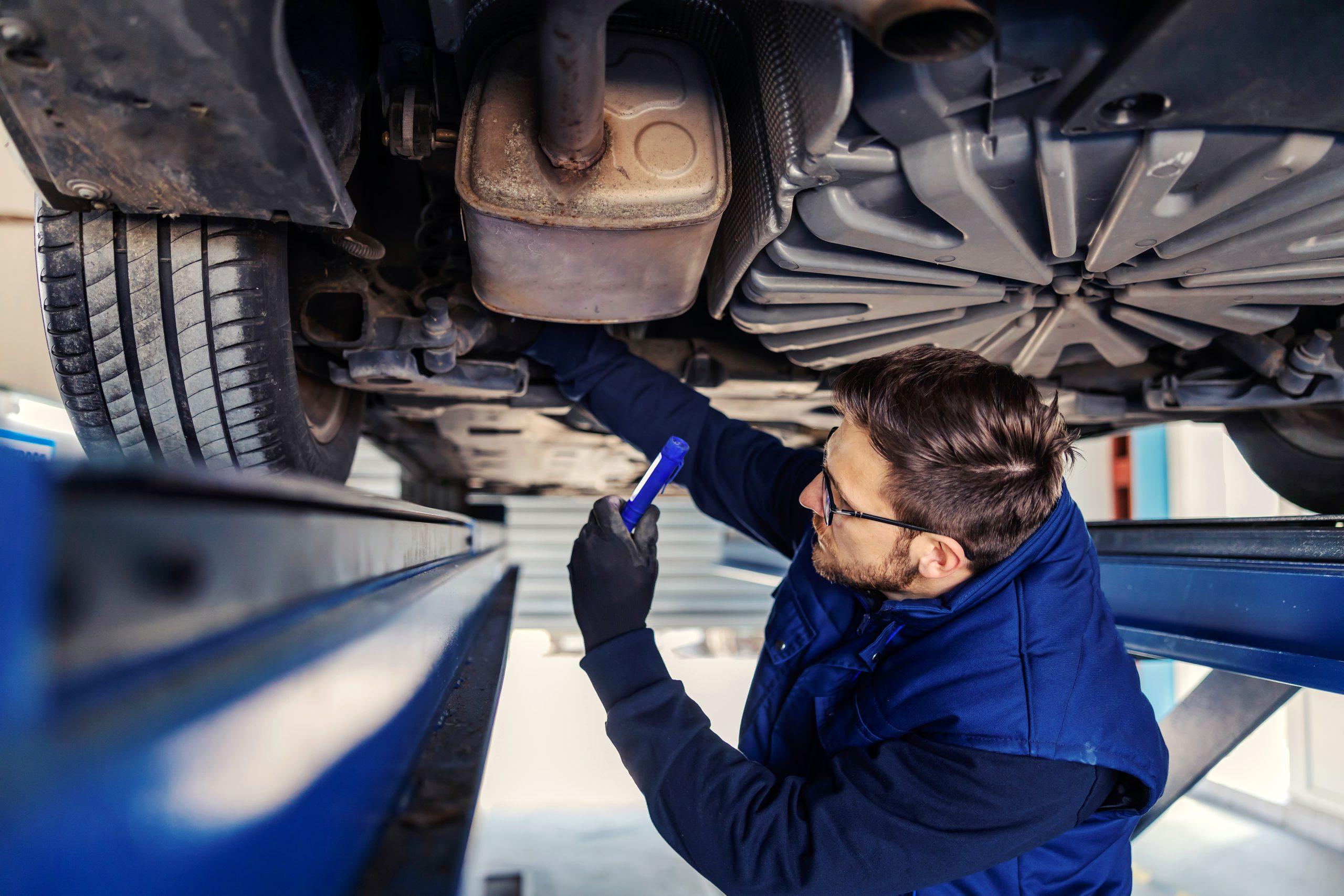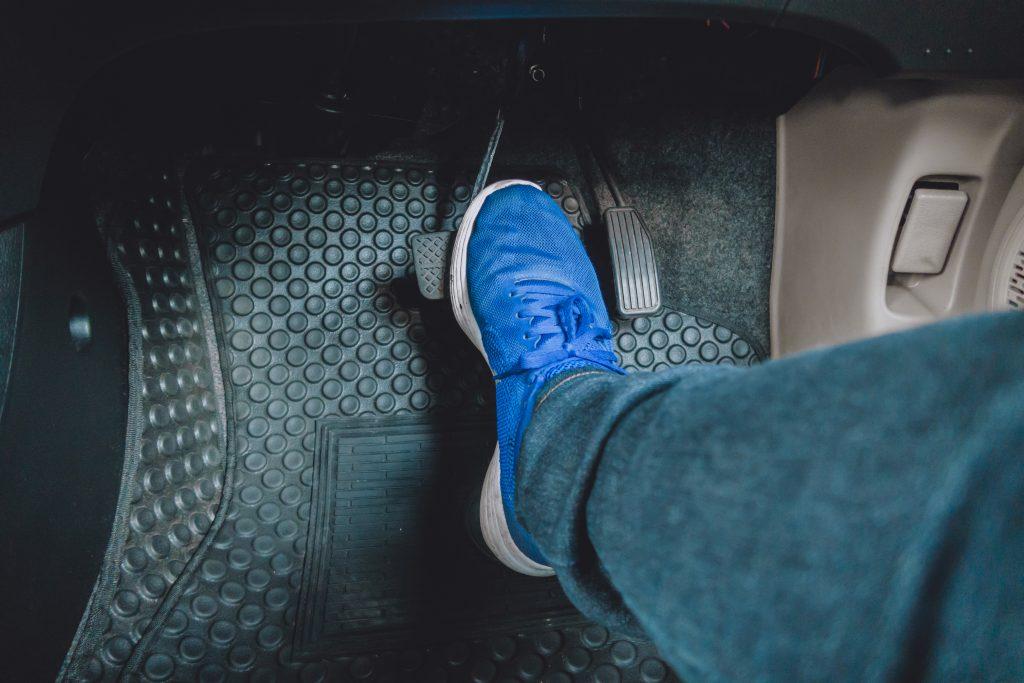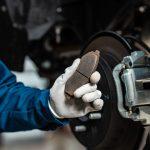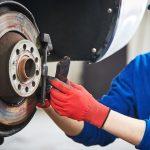
The Top 5 Signs Your Brakes Need Immediate Attention
- Harbor Brakes
- January 2, 2024
- Brakes
- brake fluid, brake maintenance, brake pads, brake repair, brake rotors, brake service, brakes, pads, rotors
As a responsible driver, it’s crucial to keep your vehicle in top condition to ensure your safety on the road. One of the most critical components of your vehicle is the brake system. Without properly functioning brakes, you’re putting yourself and other road users at risk. Knowing the signs of brake trouble can help you identify issues early on and seek prompt attention.
Key Takeaways
- Knowing the signs of brake trouble can help prevent accidents on the road.
- Keep an eye out for warning signs such as squeaking or grinding noises, soft or mushy brake pedal, vibrations or pulsations, dashboard warning light, and uneven brake pad wear.
- Regularly inspecting your brake system can help identify potential problems early on, preventing costly repairs and keeping you safe on the road.
- Ignoring brake issues can result in further damage to your brake pads, rotors, or calipers and lead to compromised braking efficiency.
- It’s important to seek professional brake service if you notice any of these warning signs or suspect brake trouble.
Sign #1: Squeaking or Grinding Noises
If you hear a high-pitched squeaking or grinding noise when stepping on the brakes, it’s likely time to check your brake pads. When the brake pads wear down to their limit, the metal indicator will start rubbing against the brake rotor, causing the sound. Ignoring this issue can cause further damage to the brake rotors, resulting in costly repairs and reduced braking performance.
Fortunately, replacing brake pads is a quick and relatively inexpensive fix that provides a safer and smoother driving experience. Make sure to take your vehicle to a trusted brake specialist, who will determine whether you need a brake pad replacement or a more comprehensive brake service.
Sign #2: Soft or Mushy Brake Pedal
If you press down on the brake pedal and notice it feels softer or spongier than usual, this could be a sign of a problem with your brake fluid. When fresh, brake fluid is highly pressurized and should help you stop on a dime. However, over time, it can become contaminated or break down, leading to air bubbles, leaks, or lower pressure. Tireless braking or driving in harsh environments can also contribute to wear and tear on your brake system and cause a low pedal feel.
If you encounter this problem, it is crucial to react promptly and get your brakes checked by a certified brake technician. Ignoring soft brake pedals can result in losing valuable brake performance, making it more challenging to stop effectively or cause brake failure in the event of an emergency.
Fortunately, fixing the problem can be a relatively simple process, in some cases, requiring a brake fluid flush or top-up. However, brake fluid should always be handled with care, and it is essential to use high-quality fluid that meets your vehicle’s manufacturer specifications.
Don’t compromise your safety on the road, ensure that your brake fluid is regularly checked and maintained to keep your brakes working as they should.

Sign #3: Vibrations or Pulsations
If you feel vibrations or pulsations when applying your brakes, it may be due to warped brake rotors. This can happen when there’s excessive heat build-up or prolonged heavy braking. Driving with warped rotors can lead to compromised braking efficiency and potentially dangerous situations.
To ensure your safety on the road, it’s vital to have your brake rotors checked as soon as possible. If necessary, they should be replaced to ensure smooth and reliable braking. A qualified brake technician can help identify the issue and advise you on the best course of action.
Tip: Regular brake inspection and maintenance can help prevent brake rotor warping and other potential brake issues.
Sign #4: Dashboard Warning Light
When the brake warning light on your dashboard lights up, it’s essential to take immediate action. The warning light suggests there is an issue with your brake system, and it could be caused due to several reasons, such as low brake fluid levels or a malfunctioning sensor.
Ignoring this sign could lead to more significant problems, resulting in brake failure and a potential accident. It would be best if you took your vehicle to a brake specialist for a thorough inspection immediately.
The brake specialist will diagnose the problem and perform the necessary brake service to resolve it. The brake service may involve a brake fluid replacement, brake pad replacement, or other fixes, depending on the issue.
It’s crucial to aim for regular brake system maintenance to avoid such situations. Regular brake service can help you detect the issue before it becomes a significant concern, and you can remedy it before any further damage is done.

Sign #5: Uneven Brake Pad Wear
Uneven wear on your brake pads can be a sign of caliper problems. If the calipers are sticking or not releasing properly, it can cause excessive wear on one side of the brake pad. This can also lead to decreased braking power and compromised safety on the road.
Regular brake inspection and maintenance is crucial to identify and address these issues before they become major concerns. If left unchecked, it can result in replacing not only your brake pads but also your brake calipers, which can be costly and time-consuming.
To avoid such a situation, ensure you keep up with your routine brake service appointments and have your mechanic inspect your brake pads and calipers. They can also advise you on the best course of action to take when any signs of uneven brake pad wear are detected.
It’s essential to address any brake-related issues swiftly to ensure your safety on the road. Don’t neglect your vehicle’s brake system, as it is a crucial component in keeping you and others safe while driving. Remember, regular maintenance and early detection can save you time, money and, more importantly, keep you and your passengers safe.
FAQ
What are the top signs that my brakes need immediate attention?
The top five signs that your brakes may need urgent care include squeaking or grinding noises, a soft or mushy brake pedal, vibrations or pulsations when braking, a dashboard warning light, and uneven brake pad wear.
What does it mean if my brakes are making squeaking or grinding noises?
Squeaking or grinding noises when applying the brakes usually indicate that your brake pads are worn out. Ignoring this issue can lead to further damage to the brake rotors and compromise your braking efficiency.
Why is a soft or mushy brake pedal a cause for concern?
A soft or mushy brake pedal is a common indication of a problem with your brake fluid. It could be caused by air bubbles or a leak in the brake system. It’s crucial to address this issue promptly, as it can affect your ability to stop the vehicle effectively.
What should I do if I feel vibrations or pulsations when braking?
Feeling vibrations or pulsations when braking could suggest warped brake rotors. This issue can occur due to excessive heat build-up or prolonged heavy braking. It’s essential to have your brake rotors checked and, if necessary, replaced to ensure smooth and reliable braking.
What should I do if the brake warning light on my dashboard is illuminated?
If the brake warning light on your dashboard is illuminated, it’s a clear indication that there’s a problem with your brake system. This could be due to various issues, such as low brake fluid levels or a malfunctioning sensor. Immediate attention from a brake specialist is necessary to diagnose and resolve the problem.
What does uneven brake pad wear indicate?
Uneven wear on your brake pads can be a sign of caliper problems. If the calipers are sticking or not releasing properly, it can cause excessive wear on one side of the brake pad. Regular brake inspection and maintenance can help identify and address these issues before they become major concerns.

